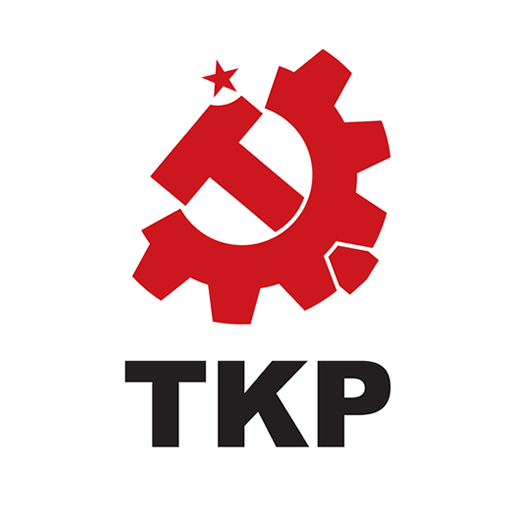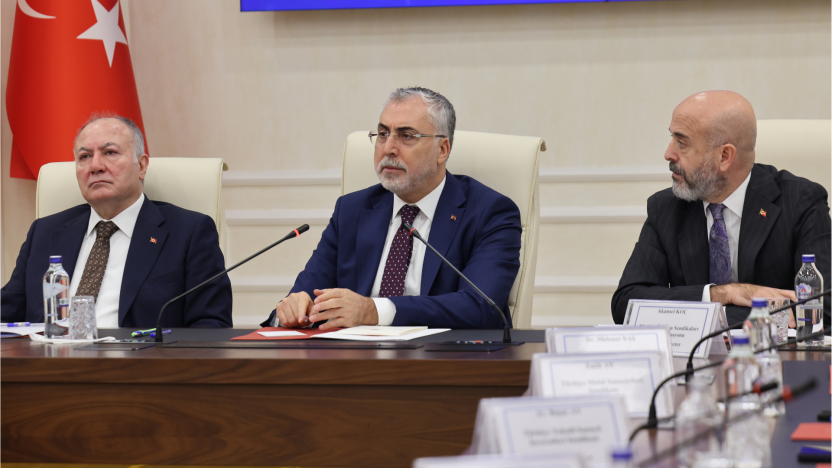The negotiation process to determine the minimum wage for 2025 is ongoing in Turkey. The Minimum Wage Commission, which includes representatives from a yellow union, the organisation of capitalists and the Ministry of Labour, has met several times, but has not yet started to discuss the wage in concrete terms.
The yellow union announced that their proposal is 29,583 Turkish liras. This amount, which is slightly above the hunger limit and well below the poverty line, has provoked a reaction and debate.
Moreover, some of the leftist organisations have also joined the debate with their own proposals. There are those who say 30,000 Turkish liras and those who say 50,000 Turkish liras…
Kemal Okuyan, General Secretary of the Communist Party of Turkey (TKP), made an intervention on the debate by underlining that the working class should reject the minimum wage debates in a narrow sense.
Stating that the final amount, which has not been announced yet, will not be satisfying either, Okuyan said: ‘The working class should not approve or accept any amount (yes, any amount) that will be offered to them. At the end of the day, the struggle to be fought with this approach will also be meaningful to achieve the highest minimum wage increase.’
Pointing out the importance of exposing the mechanisms of exploitation, TKP General Secretary noted that demands such as ‘state ownership’ in all sectors that serves to questioning the domination of the capitalist class should be kept on the agenda.
Okuyan’s full statement is as follows:
‘It is politically meaningless to pronounce a number on the minimum wage. The government and the capitalist class will find a way to increase it below the real inflation rate.
Saying ‘this is the right of the working class’ to the government, which plays with all the figures as it pleases, does nothing but legitimise the phenomenon of exploitation and the great injustice of today.
Instead of pushing the boundaries of realism by pronouncing numbers that the government will never agree to, demands such as ‘nationalisation’ that will squeeze the capitalist class and question its rule should be insistently kept on the agenda. Contrary to common belief, the realisation of these radical demands is possible and more realistic, even though it depends on the rise of social struggles and a change in the balance in the labour-capital contradiction and a change of the system.
Under today’s conditions it is impossible to raise the minimum wage to a level that would lead to a meaningful improvement in the situation of the working class; if this is done, the mechanisms by which what is given with a spoon will be taken back with a ladle will immediately come into play.
The situation in which large sections of workers are locked into the minimum wage debate every year must be prevented. This ‘bargaining’ alone adds nothing to the working class, neither in terms of daily gains nor in terms of the culture of struggle.
What we propose is not to stay out of the minimum wage agenda, but on the contrary, to turn the interest created by this agenda into the exposure of the mechanisms of exploitation and the development of a permanent ‘refusal’ of the working class. The working class should not approve or accept any amount (yes, any amount) that will be offered to them. At the end of the day, the struggle to be waged with this approach will also be meaningful in order to achieve the highest minimum wage increase.
Let the ‘so-called’ labour representatives sitting at the table of capital pronounce the numbers.
Well, now the minimum wage amount is about to be announced. ‘Let’s not approve any amount’. Even before it is announced, we say, it is not enough!
You will never be able to legitimise exploitation and inequality, and the overflowing coffers of the corporations thanks to the labour of workers.’
TKP also recently issued a declaration entitled ‘DON’T BE ASHAMED OF BEING A WORKER’, addressing the working class of Turkey. With this statement saying ‘WE ARE WORKERS. THEY ARE A FEW, WE ARE MILLIONS’, it is aimed to intervene the consolidation of the class consciousness and belonging of the working class. The declaration ends with a call for joining the TKP. You can read the declaration in English on the international web page of TKP in the coming days.



